Croatia Coronavirus Update: 18 New Cases And 13 Related Deaths
June 14th, 2021 - Croatia Coronavirus Update has registered 18 new COVID cases in the past 24 hours while 13 COVID patients people have died, the national COVID response team reported on Monday.
The number of new cases was 25 fewer than last Monday when 43 new cases were identified. Currently, 404 COVID patients are hospitalized around the country, with 26 of them on ventilators.
There are 847 active cases in Croatia, while 6,012 persons are in self-isolation.
Croatia has registered 358,581 cases of the novel crisis since the first case was identified in February 2020, while the death toll has climbed to 8,152. A total of 349,582 have recovered from the contagion.
A total of 2,080,792 people have been tested for the virus, 2,082 of whom were tested in the past 24 hours.
So far, 1,412,939 people have received at least one dose, while 725,883 have received both doses.
For all, you need to know about coronavirus specific to Croatia, including travel, border, and quarantine rules, as well as the locations of vaccination points and testing centers up and down the country, make sure to bookmark our dedicated COVID-19 section and select your preferred language.
15.8% More Building Permits Issued in April
June 14th, 2021 - A total of 850 building permits were issued in Croatia in April 2021, 15.8% more than in April 2020, the Croatian Bureau of Statistics (DZS) reported on Monday.
Based on the type of structure, 84% of the permits (714) were issued for buildings and 16% (136) for civil engineering works.
Year on year, the number of permits issued in April 2021 increased for buildings by 18%, and civil engineering works by 5.4%.
The value of construction work based on the permits issued in April 2021 amounted to HRK 2.17 billion, or 11.5% more than in April 2020, when the value of construction work was HRK 1.95 billion.
The value of construction work on buildings is estimated at HRK 1.56 billion or 2.6% more than in April 2020, while the value of work on other structures increased by 43.3% to HRK 611 million.
According to the type of construction work, 637 building permits or 75% were issued for new structures, while 25% or 213 were for reconstruction.
Based on the permits issued in April, 1,332 new apartments are expected to be built.
In the first four months of 2021, 3,556 building permits were issued, which is an increase of 24.6% on the year, and the works were estimated at HRK 9.64 billion or about 24% more than in the corresponding period in 2020.
For more about news in Croatia, follow TCN's dedicated page.
Capak: AstraZeneca Shouldn't Be Administered Only To People With Capillary Bleeding
June 14th, 2021 - The head of the Croatian Public Health Institute, Krunoslav Capak, commented on the European Medicines Agency's (EMA) position that countries should avoid administering the AstraZeneca COVID-19 vaccine to people over 60 due to concern related to rare cases of blood clotting.
"As far as I know, it has only been decided that people with so-called capillary bleeding, which is an infrequent disorder connected with the lack of certain blood proteins, should not be inoculated with the AstraZeneca vaccine," Capak said.
He added that contrary to reports on some Croatian web portals over the weekend, EMA did not conclude that the AstraZeneca vaccine would not be administered to people over 65.
"Now that incidence in Europe is much lower than it was when vaccination with the AstraZeneca vaccine started, the relative risks have been changing slightly for those who get infected and possibly develop a serious form of the disease and those who get vaccinated and develop a serious side effect," he said.
"Since those relative risks have changed, it is necessary to discuss the matter again at the European and national levels," the HZJZ head said in Virovitica-Podravina County, where he attended the start of a vaccination campaign by mobile teams visiting smaller communities by bus to inoculate their residents.
Capak was accompanied by Health Minister Vili Beroš, who dismissed claims on social networks that he did not fully pay his bill in a Zadar café which he left in protest at the fact that waiters were not wearing face masks.
Health minister comments on incident in Zadar café
"I talked to the cafe owner this morning. I did not leave the establishment without paying my bill in full," Beroš said.
"What kind of health minister would I be if I had stayed in the cafe... with waiters not wearing face masks," he said, explaining that he had kindly asked the waitress taking his order to put on a face mask but she ignored the request.
He noted that there were foreign guests in the cafe whose perception of Croatia was also formed on the basis of compliance with anti-epidemic measures.
As for questions if workers should wear face masks outdoors, Beroš said that that was necessary because waiters serving food and drinks in the open did so at less than two metres or a metre and a half from their guests.
For all, you need to know about coronavirus specific to Croatia, including travel, border, and quarantine rules, as well as the locations of vaccination points and testing centers up and down the country, make sure to bookmark our dedicated COVID-19 section and select your preferred language.
Voices Of the Diaspora: Meet Cross Continental Football Manager, Zdravko Logarušić!
June 14th, 2021 - Croatia is well known for producing some of the greatest athletes in the world across different sports, but out of 4 million Croats, only three have been selected as coaches of national teams abroad. Zdravko Logarušić entered a narrow circle of coaches who managed to lead two world teams and named coach of the year in Kenya, which is a great success for Croatian football.
Originally from Herzegovina, Zdravko grew up in Slavonski Bord and has coached football teams across four continents. He is among the first generation of coaches who headed to the football academy and eventually got the Euro-Pro License, which allows him to coach anywhere in the world after a successful finish to the 1998 World Cup. In 2009 he received an invitation from Uganda Premier League to coach King Faisal FC, a team last on the table, who had 9 points out of a possible 39. At the end of the season, he managed to get them in seventh place, and it's where his success across the African continent began.
Logarušic is currently based in Zimbabwe, coaching the National Football Team and training to qualify for the World Cup. "As a coach, I've experienced it all but have yet to play a World Cup match," said Zdravko.
1. How did you get into coaching football internationally?
When Croatia finished third at the 1998 World Cup, the European National Football team decided to award Croatia 24 seats to a school of 24 coaches every 3 years who can apply for a European license, which is the highest license. In translation, it is the level of Dr. Football. I have a UEFA Pro license, which allows me to lead all clubs and national teams globally.
2. So you've mainly coaches across the African Continent, can you tell us more?
After the initial success of coaching King Faisal in 2009, I returned home to Croatia after six months. Then I was invited by another club from the Uganda League, who championed the year before, together we entered the African Cup of Nations. I stayed there for a year, and after that, I got an invitation from Gor Mahia Club in Kenya. I stayed there for a year and a half, I won the Kenyan Cup with them, reached their top 8, but I lost the championship in the last round. That year I was the coach of the year in Kenya. After that, I moved to Tanzania to coach Simba FC. Gor Mahia FC Kenya and Simba FC Tanzania play Champions League most often in Africa. I stayed there for less than a year and won one cup with them. After Tanzania, I returned to Kenya and took over the Leopards FC. I saved them from being relegated to a lower rank. After a little less than a year, I moved to Angola and coached the Interclube Football Club. I spent a full year there, and I won the same cup in Angola. After Angola, I got a call from Ghana for Ashante Kotoko, the most popular club of the 20th century in Africa. I have been with them for less than a year since I received an invitation from Sudan for the Sudan national football team. I spent 2 years in Sudan with 40 million Arabs of the Muslim faith and a white man of the Catholic faith as a national team selector. I won third place at the Africa Championship, competition as the European Championship, but with the choice of a team from players who play in the local league. With them, I also qualified for the group stage with the World Cup in Qatar 2022. Then I got a call from the Zimbabwe National Football Team, which I took over last year. I managed to qualify with them for the African Cup of Nations, the best national teams that will compete for the African championship next year. Now in June, the qualifications for the World Cup will begin.

Zdravko as a coach of the Sudan National Team with his players after winning third place at the Africa Championship
3. What are some differences between football federations in Africa and Europe?
Africans are very easygoing, whereas we Europeans are very strict when it comes to time. In Africa, when they say I’ll call you in a minute, they’ll call in a few hours. They have no stress. That’s one of the biggest differences I have experienced. Their way of living is very relaxed. In 2009 I remembered going to practice 45 minutes early. Practice starts at 9, and players only arrive at 10:30 am. They were carefree, singing, and without any stress. You have to be ready for surprises and to be able to quickly adapt to new environments as well as accept their culture. When I’m in Rome, I act like a Roman. I don’t come in and change everything about everyone. You’re there to do your job and respect the players.
The difference when it comes to funding is huge. Croatian football has a budget of, let's say, 15million dollars for qualifying for the World Cup, whereas, for Zimbabwe, they have a 1 million dollars budget per year. Zimbabwe qualified for the African Nations Cup, and the African Football Federation will pay them half a million dollars to prepare the cup. In contrast, in Europe, they can get 8-9 million dollars for the Champions league just for qualifying. It differs per country, but some governments award their national teams after gaining money from the African Cup, but some don’t. For example, Zimbabwe doesn’t sponsor the national team.
4. What about youth talent across the African continent?
African football is getting closer to European football, it is not the same quality yet, but they are coming closer and closer. The difference is that football in Africa as a sport is very neglected due to lack of money, training conditions, and working with young categories. In Europe, children aged 8-9 already go to training 2-3 times a week. When they turn 18, they already have a higher quality of skills compared to 18-year-olds in Africa. Most players start playing professionally at 18 without a football background. Africans, in general, are very athletic; they are quick, explosive, and strong. When you put them in European football, very quickly, they can adapt and excel.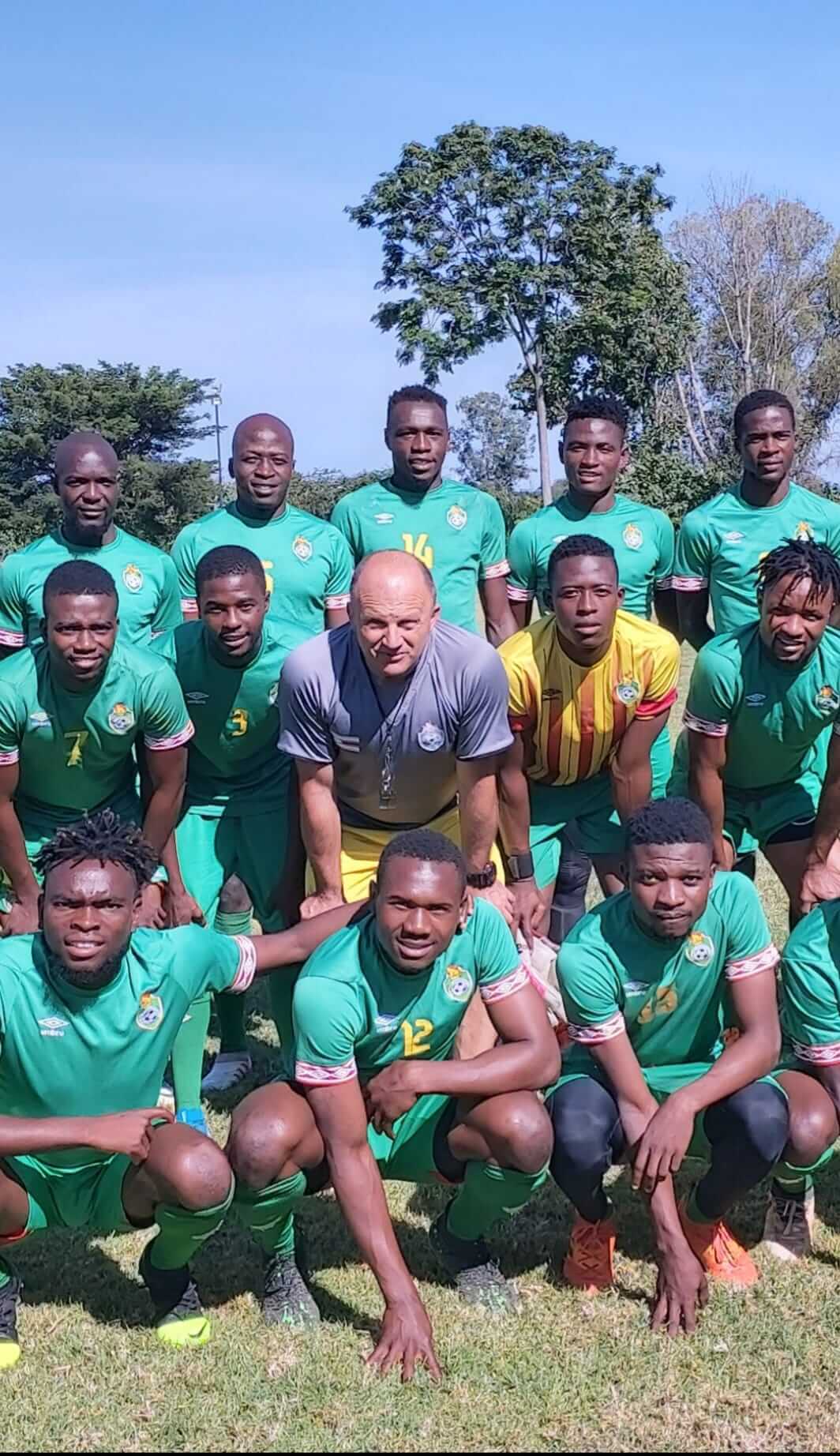 Zdravko with the Zimbabwe Natonal Football Team
Zdravko with the Zimbabwe Natonal Football Team
5. How is it to be away from your family most of the time?
My job is like a different story every week, and coaches are hired to be fired. One suitcase is always ready to go. You never know when you will get fired and move my family every few months and weeks. It's too stressful because you don't know what will happen. You can get fired after a couple of weeks or months, but the point is that you always get fired. It’s more safe and secure for my children to grow up in a place they can call home rather than moving across the world every few months.
6. Other than your family, what do you miss the most about home when you're abroad?
Cuisine, lifestyle, language, closeness to family and friends. As a nomad, you lose a part of your social life being away from those closest to you, but everything has a price. The difference is Easter in Zimbabwe, where it passes, and no one notices it, and Easter at home in Croatia. It’s a different world you have to be able to adapt to. There are pros and cons, and you have the most out of every situation. Everyone has a different life story which would make for an incredible book.
7. How often do you get to come back home to Slavonski Brod?
As a national team coach, I don’t always have to be at work. It all depends on the job. When you work as a coach, you can train for a maximum of 8 months and a month of preparation before. So you as a coach can go home for a maximum of 2 months. But as a national team coach, when there aren't many games, I can often come home. It’s a little easier for me now, and during the pandemic, I was home for 5 months. From the first 4 months of 2021, I have already spent 2 months at home, and this year I expect to have at least a month during the summer and then again to spend the whole of Decemeber at home. When my children were small, about 10-12 years old, they organized their lives without me. When you come, you confuse them with everything. My daughter asked, "Mom, when is Dad going? He messed everything up."

Zdravko Logarušić as a coach for Gor Mahia
8. Any plans to bring your family to Africa in the future?
They haven’t been to Africa yet but are now slowly considering coming to visit. Africa is not what CNN and domestic television show, which a lot of people don't know. 20km from the capital, which is always shown on TV, is not the capital and cannot be compared. It's like someone now goes 20km out of Split and says it's Split when it doesn't look like anything.
9. What are your plans for the future regarding coaching and where you're based?
It is unknown now, and I do not know what is happening next week, what offer can come and where it could be in the world. For now, I am here, in Zimbabwe for the next year and a half, and then at the end of the contract, it will be known where, when, and how. It would be nice to open something in Croatia, but if it opens, no one in Croatia has stayed in one club for more than 2-3 years. It’s a job that goes contract from the contract, and something new is always sought.

Gor Mahia (Kenya) fan | Zdravko Logarušić Facebook
10. You've lived and coached across several countries; which one was your favorite?
I had my first big successes in Africa, the climate suited me in Kenya, and that is where I made my first big coaching steps. Every country has left me a fond memory, but in the end, it was all a positive experience. It’s the job I love, the adrenaline I live for, and what drives me. I work best when the pressure is high.
Are you part of the Croatian diaspora and would like to contribute your voice and experiences to this series? If yes, please contact This email address is being protected from spambots. You need JavaScript enabled to view it. with the subject "Diaspora."
For more about made in Croatia, follow TCN's dedicated page.
For more about sport in Croatia, click HERE.
KLM Increases Daily Flights to Croatian Destinations!
June 14, 2021 - Great news as the Dutch airline KLM increases daily flights to Croatian destinations such as Dubrovnik, Split, and Zagreb for the summer season!
The latest developments regarding flights to Croatia continue to improve this summer season, as KLM increases daily flights to Croatian destinations and offers from one to three daily flights to destinations in Croatia. KLM is ready to responsibly and safely transport its passengers to selected destinations and has provided members of its Frequent flyer program Flying Blue with a 30% lower testing price in cooperation with the LabPlus Polyclinic, reports hrturizam.hr.
Additional seasonal KLM flights from the Netherlands to Croatia will be:
To Dubrovnik:
From June 26, KLM will start direct traffic between Amsterdam and Dubrovnik. The first weeks will fly on Saturdays and Sundays, and from July 3, 2021, it will operate daily until the end of the summer season, August 29, 2021.
- KL 1803 will depart from Amsterdam at 10:05 and arrive in Dubrovnik at 12:35
- KL 1804 will depart from Dubrovnik at 13:25 and arrive in Amsterdam at 16:05.
To Split:
There are three daily flights on this route:
- KL 1940 departs at 06:45 from Split and arrives in Amsterdam at 09:05
- KL1951 departs from Amsterdam at 19:30 and arrives to Split at 21:40
- KL1946 departs at 12:50 from Split and arrives in Amsterdam at 15:20
- KL1945 departs at 09:50 from Amsterdam and arrives in Split at 12:05
- KL1948 departs at 17:45 from Split and arrives in Amsterdam at 20:20
- KL1947 departs at 14:50 from Amsterdam and arrives in Split at 17:00
To Zagreb:
KLM operates two daily flights on the route Amsterdam - Zagreb.
- KL1941 departs at 14:20 from Amsterdam and arrives at 16:10 in Zagreb
- KL1939 departs at 20:45 from Amsterdam and arrives at 22:35 in Zagreb
- KL1938 departs at 06:25 from Zagreb and arrives at 08:25 in Amsterdam
- KL1942 departs at 16:50 from Zagreb and arrives at 18:55 in Amsterdam
Follow the latest on flights to Croatia HERE and the latest travel updates and COVID-19 news from Croatia HERE.
For more on travel in Croatia, follow TCN's dedicated page.
After Revision Of NPOO, Croatia To Get HRK 1 Bn Less From EU
June 14th, 2021 - The European Commission has revised Croatia's National Recovery and Resilience Plan (NPOO), and for now, no items have been deleted. However, imprecision and errors related to the costs shown are being corrected, which has resulted in one billion kunas less for Croatia from the EU.
A brief analysis shows that Croatia set the cost of its recovery and resilience plan at HRK 49 billion to be used for reforms and investments. After the EC went through individual items, the amount was slashed by around HRK 1 billion, the Jutarnji List daily says in its issue of Monday.
The National Recovery and Resilience Plan have adjusted to the situation because the EU has made Croatia around €6.3 billion or HRK 47.5 billion as part of its Recovery and Resilience Facility.
The prime minister's advisor on the NPOO and its coordinator, Zvonimir Savić, said the government was satisfied with the evaluation of national recovery and resilience plans so far because even though the total amount had been reduced, "the plan's concept, its thematic units, and reforms have been preserved to a large extent," which, he said, was not the case with some other countries.
Asked what specifically had been reduced or changed, Savić said that none of the envisaged investments was removed from the plan but that there had been technical errors in the costs shown, resulting in the reduction of the total amount for the sub-component for a resilient, green and digital economy, which is particularly interesting to entrepreneurs, by around HRK 500 million.
Croatia originally envisaged around six billion kunas for that purpose, to be obtained through various financial instruments. Still, after the costs were reviewed with EC experts, the cost was set at HRK 5.5 billion.
Savić said that the reduction of funds referred mostly to various financial instruments but that the amount to be made available in the form of grants had, in fact, been increased.
For more on politics in Croatia, follow TCN's dedicated page.
Marko Rakar, Cybersecurity Keynote Speaker at Zagreb Digital Nomad Week (Interview)
June 14, 2021 - Zagreb Digital Nomad Week 2021 & Zagreb Digital Nomad Ambassador Project starts a week today, with the first day dedicated to the important issue of cybersecurity. And who better to present a keynote speech on cybersecurity in the Croatian capital than Marko Rakar?
Canopy by Hilton will be the venue of the opening day of Zagreb Digital Nomad Week - 7 days, 7 themes, and 7 locations in the city. Of the 7 themes to be covered in the week (cybersecurity, online presence, remote careers, tax & finance, wellbeing, the future of work, and exploring Zagreb), the opening day focused on cybersecurity will possibly be the most stimulating. And when you add a simulating speaker to a stimulating topic, ZDNW is destined to get off to a great start. We are delighted to announce Marko Rakar as the keynote speaker on Day 1, and I am grateful to him for sparing a little more time for this pre-conference interview.
On Monday, 21 June, keynote speaker Marko Rakar of Mrak.biz will bring us insights into cybersecurity and data analytics as it relates to location independent work, Croatia and global issues for cybersecurity related to recruitment, government policy and business.
Marko Rakar is recognised by the World eGovernment forum as one of the “Top 10 who are changing the world of politics on the internet”. Based in Zagreb, Marko has diverse experience in media, consulting, lecturing and speaking engagements.
Marko is Chief executive of the consulting company MRAK Services Ltd headquartered in Zagreb, Croatia.
1. Cybersecurity - it is the thing we all know we should pay more attention to, but rarely do. Give us the bad news - how worried should we be?
In real life, if you stumble upon an unsafe situation you are likely to have only one adversary (or maybe few people operating in unison), but when we talk cybersecurity, you can be attacked by many completely different actors non-stop, and sometimes many will attack you at the same time. So, while your immediate physical security is not threatened - in cyberspace, you are facing many more adversaries of whom many are prepared and well versed in what they are about to do. Furthermore, with our increasing reliance on everything virtual where more and more of our identities are basically stored in some cloud, keeping our virtual identity safe and out of reach of bad actors should be our daily task. So yes, we should be worried.
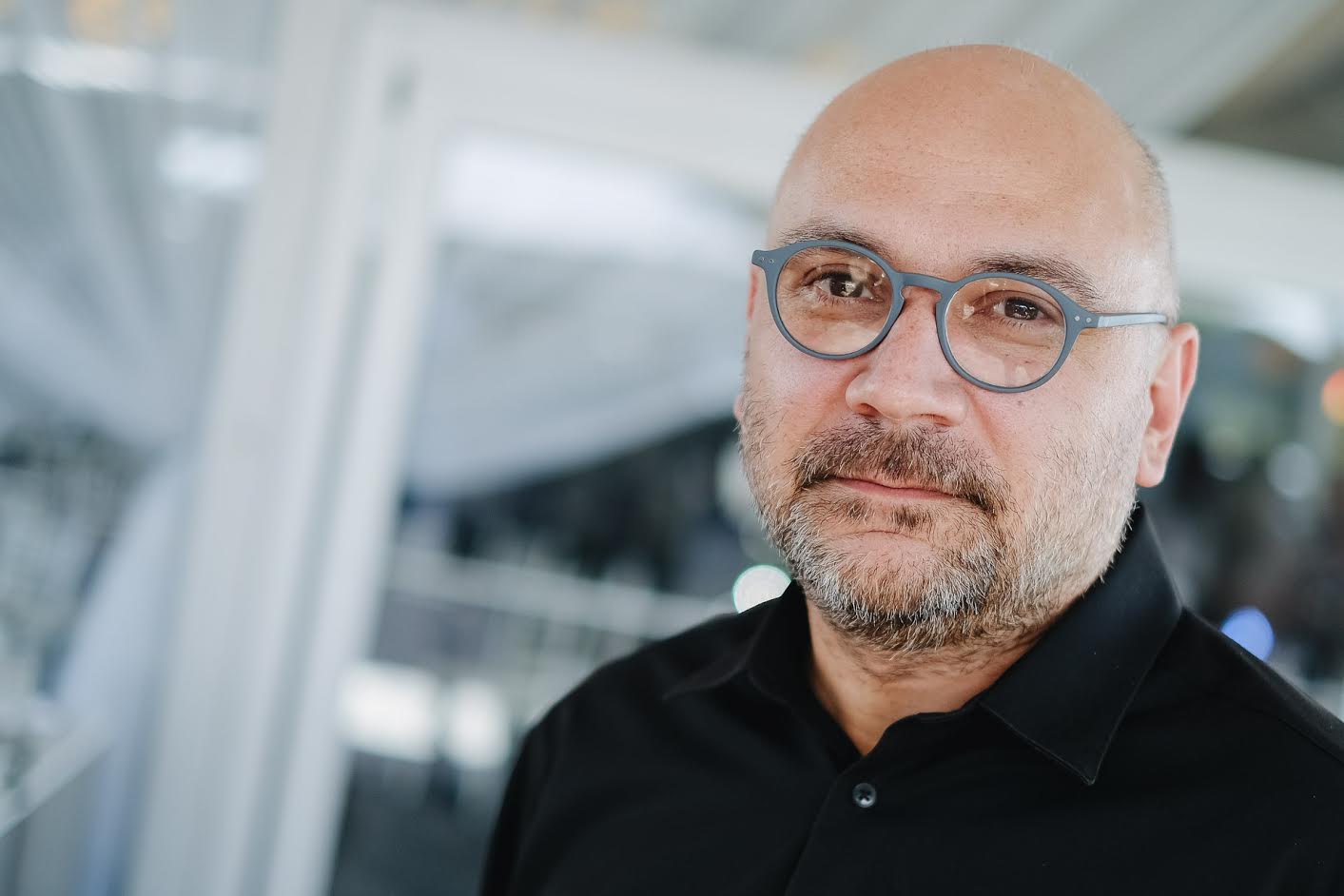
2. How does Croatia rank in terms of cybersecurity safety?
It is a confusing question, cybersecurity is (in my opinion) not something which is or can be very different regarding your physical location, cyberspace does not recognize national borders. You face exactly the same risks being in US, Croatia or China, it is more likely that your cyber visibility will make you a bigger or smaller target. Still, as Croatia is one of the safest places on the planet for you to be, similary you are quite protected in cyberspace as well. In general, we face the same risks in some areas such as viruses or ransomware attacks, but are less exposed in some other areas such as identity theft and similar.
3. A few simple tips for the common digital nomad to improve their own personal cybersecurity?
Well, when talking about cybersecurity, I am strong believer in firm discipline and protocols. This means that I will always (no exceptions under any circumstances) log on to a service exclusively from a device which I own. My passwords are very long and yours should be too. Anything with 14 characters or more should be quite safe - think of a favourite poem or sentence from a book, something really long. You should use different passwords on different services, never re-use passwords, you should use two factor authentication on all important accounts (social media, your main email account) and anything related to banking and your financials.
Do not leave credit/debit card information on any service except for ones which you use regulary and for which you have reasonable assurance and trust that they are safe. When you get email which asks for some of your personal information, or even asks you to reset a password, spend some time examining that message and check if it is valid and from exactly the person/institution which is presented in that message. Have your computer fully updated, make an ocassional full computer antivirus scan. Never execute software which you have downloaded from an unknown email message... There is no "secret recipe" to cybersecurity, only discipline and clearheaded thinking.
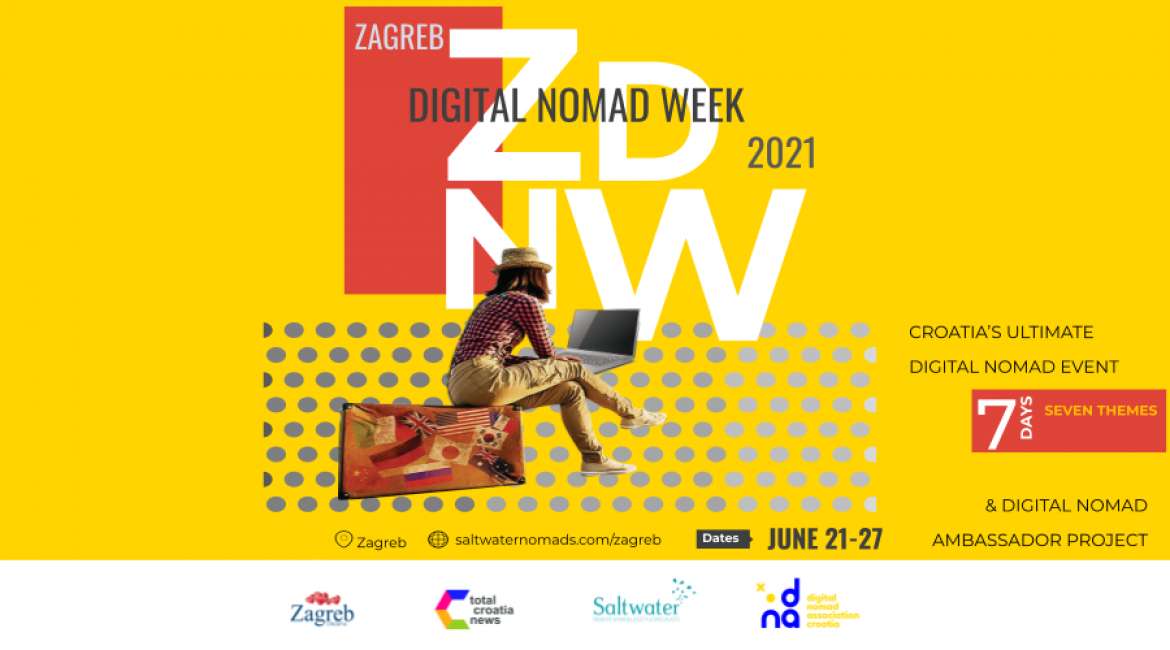
4. What are the biggest challenges facing governments and big business, where are the main threats coming from, and how can they best prepare themselves?
Currently and possibly for some time, the largest threat is and will remain ransomware, software which will encrypt the contents of your computer and asks for some kind of bitcoin ransom in order to get your data back (and/or not leaked to the internet). When you have large systems with hundreds or possibly thousands of computers, your cybersecurity is as strong as its weakest link - which usually boils down to the dumbest person in the building who brought his son's notebook "which does not work properly" and then connects it to the company wide network (and of course, the corresponding IT department which did not prevent that from happening). So once again, computers should be fully updated, unknown devices from untrusted users should never be allowed on your network, regular security sweeps should be executed and above all, you should do regular backups which are stored separately from your data (Jesus not only saves, but frequently makes a backup is sensible advice to more religious people, and YOU WILL became religous when ransoware attacks).
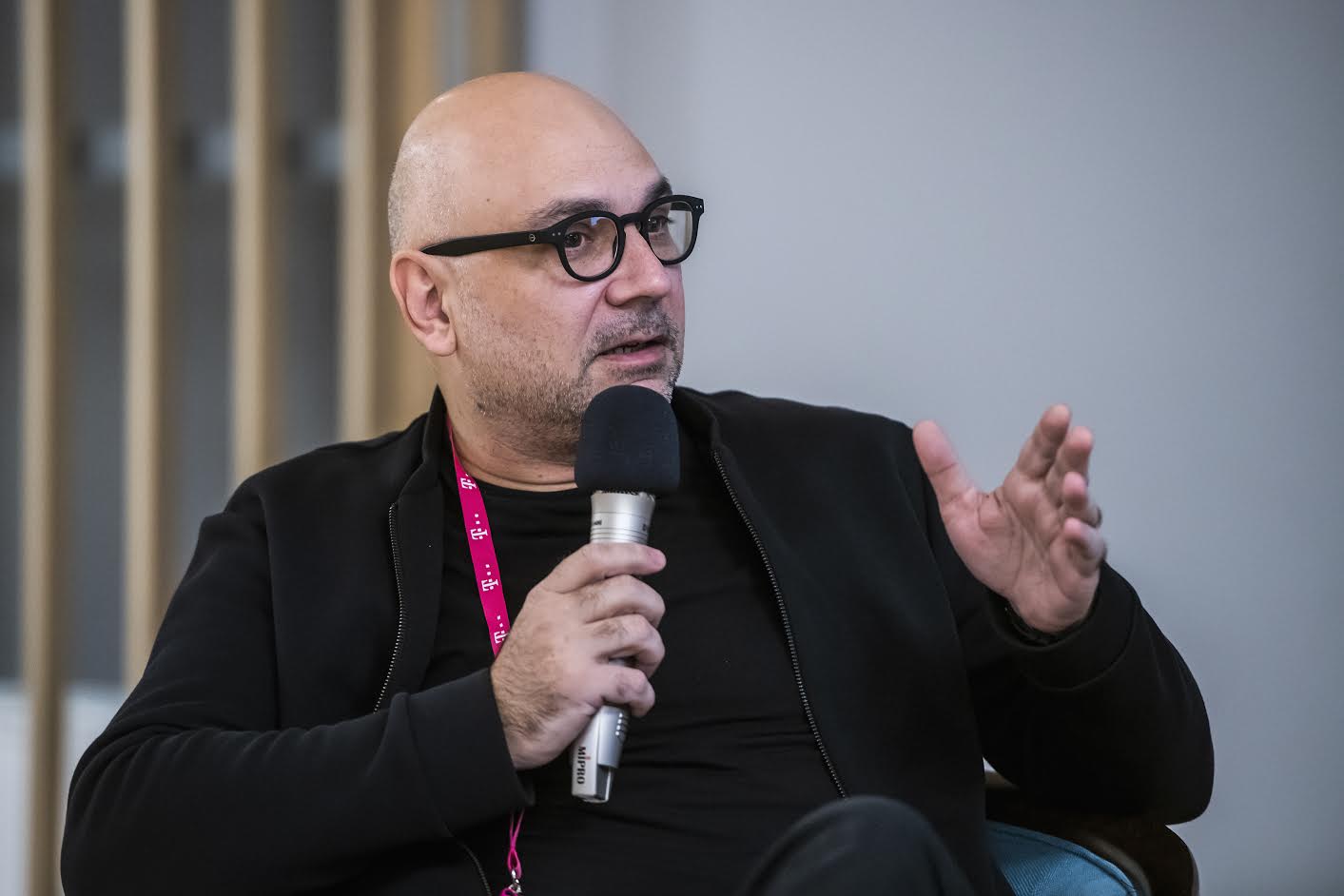
5. Tell us a little about digitalisation and Croatia. How are we doing, and how to speed up the digital revolution here?
Digital transformation in Croatia is, like everything else here, a story of contrast and unbeliveable achivements side by side colossal incompetencies and missed opportunities. In general, I would say that some services are great, such as netbanking services which are on the level of the very best you can find anywhere. Our government services are developing and are avaliable, but their development is uneven to the point that some services work great and flawlesly while others are barely usable and are absolutely unreliable to the point that some government eServices work only during the day (we literally have servers, plural, which will respond to you only during weekday working hours).
An important thing to know is that the procedures for handling documentation and legal processes in the Croatian "uhljeb"-powered bureaucracy have their roots in the 18th century Austro-Hungarian Empire. Back then people did not design their formal processes with computer workflow in their minds, so some of them are really, really hard to "translate" or digitise. Croatians, more than others, prefer form over function, which also means that we are really unwilling to take a long and hard look on why we do some things, and are very hesitant to change. As a result some of our eServices will leave you head scratching and wondering what happened there (or which chain of decisions lead to that particular result).
I am usually highly critical of Croatian eGovernment efforts, and I am critical not because I think they are particulary bad (but, as I said there are some unbeliveable stupid examples and situations), but because I know what kind of services we could have. To summarize, you will be pleasently surprised on how well Croatian businesses are handling the digital age and likely with eGovernment services too. We are probably at or above the EU average, and in some cases, we are cutting edge on the global stage.
6. There was a recent change of power in Zagreb, with the incoming mayor seemingly more open to reaching the digital age. What are your thoughts on the incoming administration and digitalisation?
The problem with Zagreb (and many other places as well) is that they have had the same leadership for a very long time. Those leaders are in general uneducated and their work processes and institution grew through the years by means of putting out one fire after the other. As a result, you have a barely functional administration which, to an outsider, looks like Frankenstein's monster, but is actually quite logical for us who witnessed on how it came to be.
The new Zagreb leadership (as well as Split or Rijeka) is full of highly educated people who have seen the world, who have breadth of sight and long-term perspective on society. They will, I sincerely hope, try to make order out of the mess they inherited. We all have high hopes, and I think that we will start seeing first results within months. All of us should be avaliable to help them with our ideas, solutions and hard work.
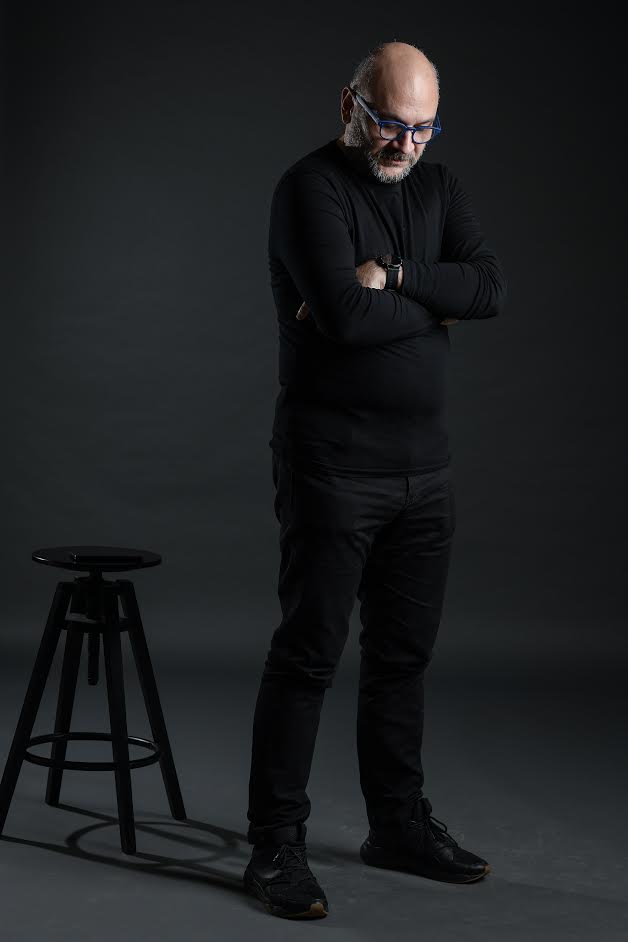
7. You are a man who works from an Internet connection around the world, and a long-term Zagreb resident. How do you rate Zagreb as a digital nomad destination in terms of safety, lifestyle and things to do?
Zagreb is a safe place to be, one of the safest you can imagine and security should really not be an issue. Furthermore, Zagreb is a city of culture, everyone will find something for themselves. There are a number of beautiful parks and a mountain literally within minutes of the city centre. You can bike almost anywhere, nothing is too far away and you can always relly on public transport and the omni-present taxi service. You will find many restaurants, clubs and bars and whole areas dedicated to leisure activities. There are many startup accelerators, shared workspaces as well as different events on just about any topic you can imagine.
On top of that, you will experience the relaxed lifestyle which is harder and harder to find these days. Not to mention that there are many destinations nearby, within two hours you can find your self swimming in the Adriatic, climbing the Alps, enjoying Slavonian wine cellars, or walking through unbeliveable beautiful and a slightly embarrasingly large number of waterfalls at Plitvice Lakes National Park. (Digital) nomads are welcome to Zagreb and I am sure they will like what they find here.
Want to attend the Marko Rakar session cybersecurity on Monday, June 21, either online of in person? Register here.
For more information about ZDNW 2021, check out the dedicated Saltwater Nomads page.
For the latest news and features about digital nomads in Croatia, follow the dedicated TCN section.
Split Tourism 2021: Most Guests Expected from July, Over 2,700 Tourists in Split Currently
June 14, 2021 - There are just over 2,700 tourists in Split, though announcements of a promising summer are underway.
Slobodna Dalmacija reports that there are currently 2766 tourists in Split - mostly Croatians, followed by guests from the USA, Germany, France, and Poland, confirmed Alijana Vukšić, director of the Split Tourist Board, which clearly speaks of the current tourist picture in Croatia's second-largest city, which broke records until the coronavirus pandemic.
From the beginning of June until June 13, a little more than 26,000 tourist overnights have been realized, while the number of tourist nights in the same period last year was 5,800, and in 2019 a little more than 100,000, which the people of Split can now only dream of.
The Split Tourist Board director is optimistically looking forward.
"The interest in Split is growing day to day, which is confirmed by tourist traffic, and also the current announcements of travel agents, journalists, and tourists. We have a reason to be optimistic, and I believe there will be growth in tourist traffic in the following months. Still, we need to be very careful because the success of the tourist season depends on the responsible behavior of each individual," says Vukšić.
The current situation in Split in terms of tourist arrivals is not great, as evidenced by the announcements of numerous renters in various groups on social networks. They mostly complain about the lack of reservations. There are many empty apartments in the city center, those in great locations, beautifully decorated.
By reviewing the offer of accommodation on popular online platforms, it is easy to see how some renters struggle because their existence depends on renting or on credit. In despair, they began to significantly lower prices. Some stunning central apartments can be found for as little as fifty euros.
"According to people's reactions and available information, the pre-season was catastrophic in the case of those renters who previously had guests in that period. Only now, in mid-June, something similar is starting to happen that once took place in the pre-season - in Split, some reservations began to appear, and the first guests appeared. This is very weak, considering that our epidemiological situation is excellent and that we thought that our "last minute" would start at full speed. For now, the story is on the respirator, but for at least the last two weeks, the reservations have started to come to life, and there are no cancellations as before," notes Martina Nimac Kalcina, president of the Family Tourism Association of the Croatian Chamber of Commerce.
The first guests move into the apartments in Split almost shyly, but this is far from what the renters hoped for. Nimac Kalcina will say that the current situation in Split on this issue looks like the one that the people of Split used to have in April. And that means - there are some guests, but it's generally poor.
"Attractive apartments in the center of Split, even those with their own parking, are empty. In the last few days, their owners are asked to inquire daily, which usually ends with a reservation, but all this is too little, insignificant. These are apartments in Varoš, Get, Bačvice, Radunica, Spinut, which were once full throughout the summer. In addition, the prices of their rent have been lowered by about twenty percent compared to 2019, so again it is not going," says the president of the Croatian Chamber of Commerce Family Tourism Association.
However, Nimac Kalcina believes that the Split tourist story will soon heat up somewhat, as the planes in full operation towards Split should start returning at the end of June.
"Unfortunately, the pre-season has been lost, and the peak season itself will not be what we hoped for," predicts the long-term volunteer in the family tourism sector.
Split Airport: Traffic growth and the announcements are good
"According to the information from Split Airport, already May, in which the traffic of approximately 33 thousand passengers was realized, from 14 markets where 15 airlines flew, was a good announcement of what awaits us in the next period," said the Split Tourist Board.
The airport expects further traffic growth by the end of June, a total of 80 to 90 thousand passengers, an additional 10 markets, and a total of 35 airlines.
"Confirmations of flight announcements for a period longer than three weeks are ungrateful given the variability of the epidemiological situation in our country and in the world. But if the favorable epidemiological situation is maintained from June to September this year, we can expect approximately 800,000 passengers," Vuksic hopes.
She notes that, according to the Split Port Authority, 151 cruise ships have been announced by the end of the year.
Follow the latest on flights to Croatia HERE and the latest travel updates and COVID-19 news from Croatia HERE.
For more on travel in Croatia, follow TCN's dedicated page.
National Federation of Croatian Americans Cultural Foundation and Croatian Fraternal Union To Celebrate Thirty Years of Croatian Independence
June the 14th, 2021 - This article was co-written by Steve Rukavina and Anna Maria Sicenica, NFCACF Board Members.
On Saturday, June the 26th at 11:00am Eastern time, the NFCA will be co-hosting with the Croatian Fraternal Union, a global webinar salute to the founding of the Republic of Croatia's democracy. The NFCA’s webinar will celebrate the 30th Anniversary of Independence Day and the honoring of another “Statehood Day” (1990 milestone) and Croatia’s successful and historic road to democracy and its independence achieved especially in the 1990-1991 time frame.
Please let us invite you to a virtual celebration to mark thirty plus years of Croatian Independence (Croatian: Dan Državnosti), filled with traditional Croatian music and notable speakers. This event, as stated, will be held on June the 26th via a webinar to benefit the Special Olympics organization in Croatia!
Register Now for the 30th Anniversary of Croatia's Independence Celebration Webinar
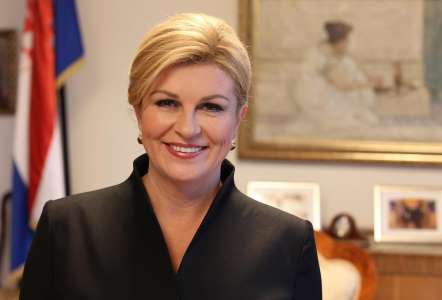
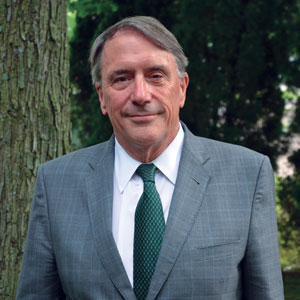
We will also commemorate this momentous day with keynote speeches by Kolinda Grabar Kitarović, the former President of the Republic of Croatia, and Peter Galbraith, the first U.S. Ambassador to Croatia. We are honored to feature co-headliners like these two very prominent diplomats and principals whose leadership to assist Croatia's developing democracy was so instrumental at critical junctures over the past thirty years.
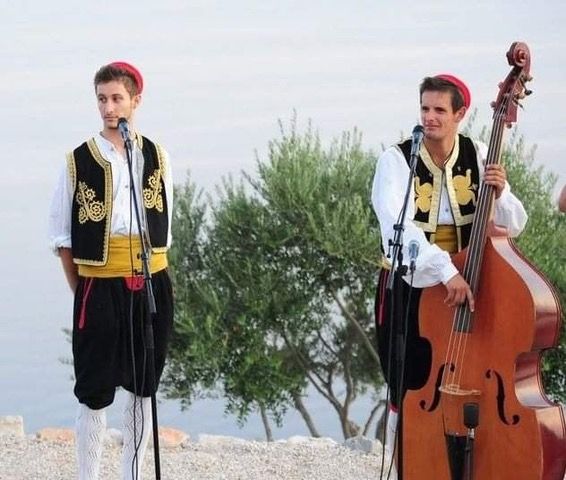
Independence Day festivities will include a live singing performance from Dubrovnik. Petar Sambrailo (left) and Marijo Anđelić (right), are well-known 1st and 2nd tenors in the Croatian Klapa world. Both have performed with the group Klapa Kaše, who have won many awards at Klapa festivals throughout Croatia.
Finally, athletes from the Croatian Showshoeing Special Olympic Team (which qualified for the Russian Special Olympics World Winter Games in 2022) will talk to us about their sport and their achievements. Founded back in 1992, the Special Olympics in Croatia has forty affiliated chapters all over the country and brings 16 sports to over 1,300 Croatians. The organization's mission is to provide year-round sports training and athletic competition in a variety of Olympic-type sports for children and adults with intellectual disabilities to develop physical fitness and to find joy in the participation of sports. Croatia's Special Olympics organization has been led by Executive Director, Franjo Horvat and associate Sladjana Tatic for over twenty years.
The NFCA has four primary sponsorship tiers from $100 Bronze to $250 Silver from the $500 Gold to the $1,000 for the Platinum level. Of course, donations of any amount are welcome and encouraged! 100% of the sponsorship proceeds and earmarked funds raised during this event will go to Croatia's Special Olympics organization. The NFCA is very proud to be a major sponsor and partner of this truly incredible organization. For inquiries about donations, please contact Steve Rukavina at This email address is being protected from spambots. You need JavaScript enabled to view it..
We hope you will join us for a wonderful seventy-five-minute event full of Croatian music, culture, and history on June 26th from the comforts of your home whether you're in Croatia, anywhere globally or here in the USA!
8th Pink Day Festival Announced For June 27th With the Best of Rosé Wines!
June 14, 2021 - A press conference was held announcing the 8th Pink Day and its interesting program. In addition to socializing with winemakers and olive growers, this favorite wine event will be marked by an entertainment program, so visitors and exhibitors can expect various surprises and even more beautiful and modern space.
This year, the 8th Pink Day International Festival of Rose Wines, Sparkling Wines, and Champagnes is being held for the first time on the covered open terrace of the MSU Museum in New Zagreb, on Sunday, June 27. Although the location and date of the event have been changed several times due to epidemiological reasons and the consequences of the Zagreb earthquake, the festival successfully brings together numerous domestic and foreign producers of rosé wines, about fifty of them, with about 100 labels of rosé wines. Winemakers, oenologists, professionals, experts, and rosé lovers will take part, and there is, of course, an important part of the Festival: Green in Pink, with a dozen of the best Croatian producers of extra virgin olive oil.
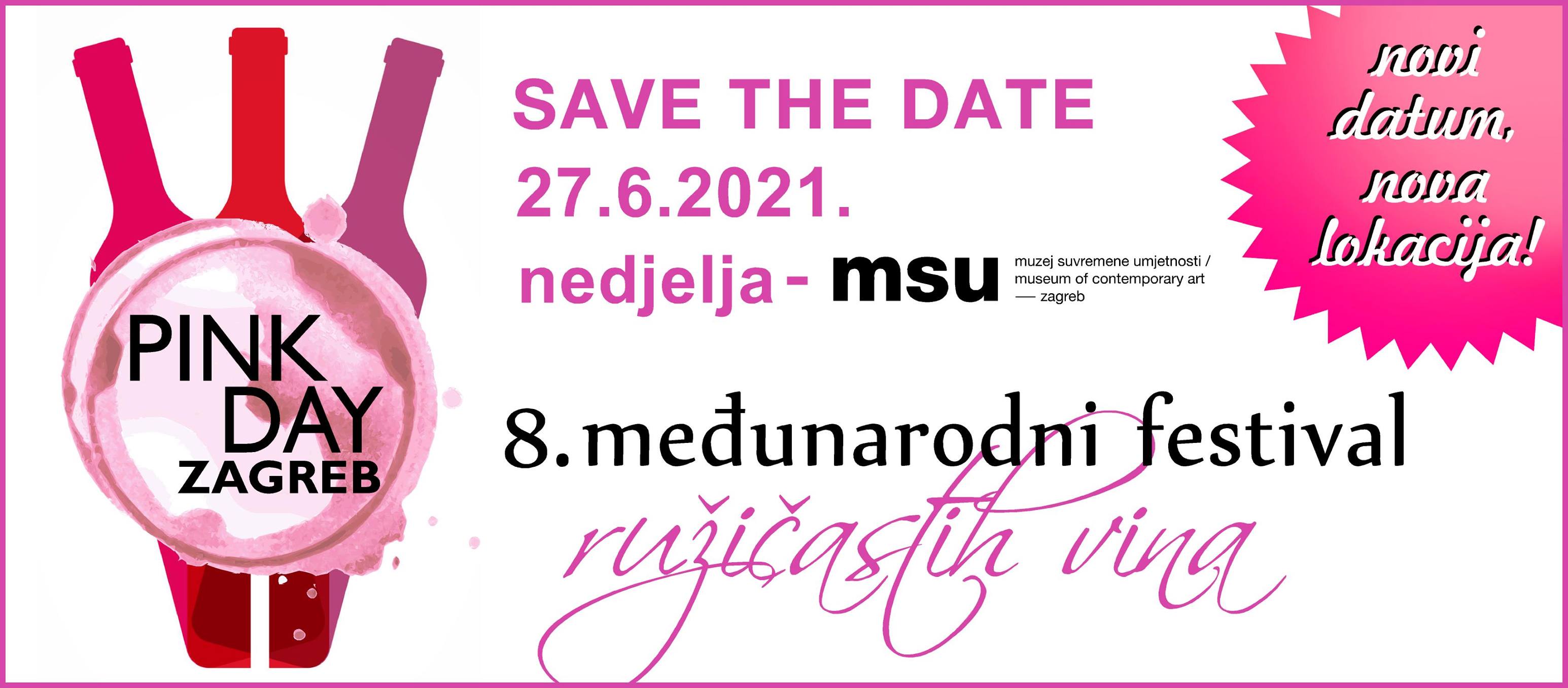
From Pink Day Official Facebook Page
At the press conference, WOW President and Pink Day founder Sanja Muzaferija, accompanied by art director Vlasta Pirnat, hostess Ana Lisak and MSU representatives, and in the presence of the co-organizer, IMC presented the novelties of the 8th Pink Day. Although the Festival always offers three or more wine and olive oil workshops, now for the first time, in cooperation with the Miva Wine Gallery, a Masterclass - World of Pink Champagnes by Moët Hennessy Group powered by Premium Visa has been organized, which has aroused great interest and sold out. just a few days. Visitors can expect two more workshops: Pink Austria, powered by Austrian Wine and with the help of the Office of the Federal Ministry of Agriculture, Regions, and Tourism at the Embassy of the Republic of Austria dedicated to Austrian rosés, and a workshop of extra virgin olive oils, Istria: Queen of Olive Oil powered by Catering Lisak, led by the famous Istrian expert Edi Družetić, who last year celebrated 40 years of work in olive growing.
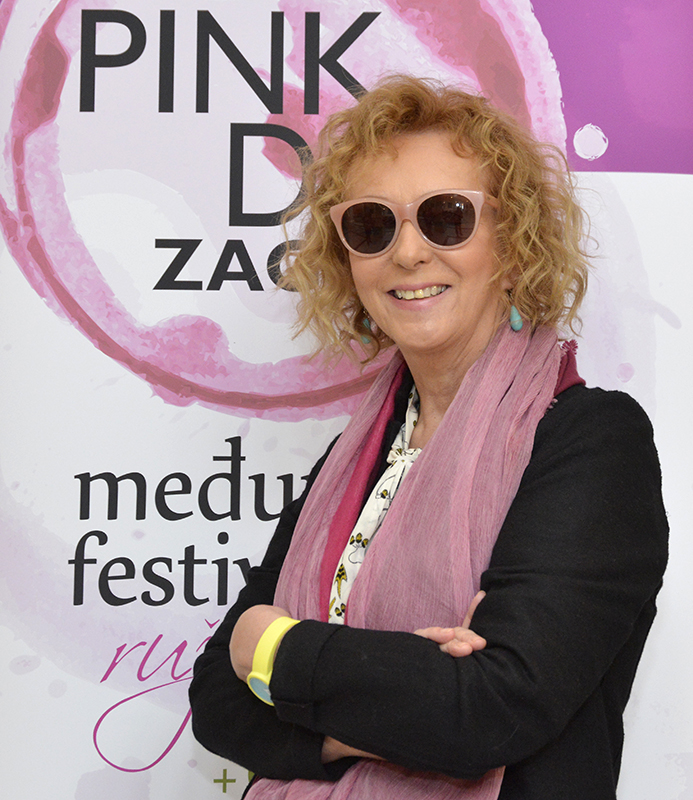
Sanja Muzaferija, Pink Day founder
‘‘I am extremely proud that this year our partner country is Austria and that, despite still somewhat problematic conditions, five exhibitors are coming from Austria, all under the auspices of Austrian Wine, but I am most looking forward to the exhibition venues of this year's Pink Day filled three weeks before the Festival. It is also important to me that we try, and I believe we succeed, to combine everything: to entertain, teach, cheer and celebrate rosé wines in a rosy mood. And let’s not forget the health and extra virgin olive oils. I thank the media that follow us faithfully and everyone who experiences Pink Day the way I imagined it: as a festival of optimism and enjoyment’’, said Muzaferija.
The ticket price for Pink Day is 150 kuna, while for members of the WOW association it is 50 kuna, and you can buy it at the entrance of the festival.
This year, Pink Day emphasizes the sale of wine, since last year was also extremely difficult for winemakers, and each winemaker will receive ten pink bags as a gift from the festival to sell their wine. Also, Pink Day continues to reward the most imaginative and creatively decorated exhibition table. Last year's prize, pink Jimmy Choo shoes, was won by the Italian winery Bottega, and this time as many as 4 prizes will be awarded. It will again be pink Jimmy Choo shoes: this time a Smokey model worth a thousand dollars, a work of art "DESIDERIO N° 1 ART MUST BE TASTED" by Austrian artist Andrew Stix, made especially for Pink Day, as well as Privee cosmetics Nikel, Croatian innovator Mirjana Brlečić, but also the ingenious bottle cap Coravin, worth 300 euros.

Pink Jimmy Choo shoes, last year's festival prize
Additionally, the current offer of all Croatian rosés will be judged by an independent jury composed of the most experienced Croatian wine judges. It is a mini-project "Drink Pink" conceived as part of the iVino concept, whose founders are journalists Ana Rogač and Ivo Kozarčanin. The best rosé wines of their choice and judgment decided, logically, to present and announce the winners, right on Pink Day.
As part of the press conference, Kutjevo held a presentation of the limited label Premium rosé, designed by the art director of Pink Day, Vlasta Pirnat, and the famous winemaker from Plešivica, Krešimir Ivančić, presented his Provencal-style rosé, Griffin Ambassador rosé. and Istrian olive oils were also tasted.
All of the above and much more interesting content await you at the 8th Pink Day, June 27, 2021, at the Zagreb Museum of Contemporary Art, MSU. All visitors will receive pink glasses as a gift until stocks run out so that after a long pandemic period they can try to look at the world more brightly and optimistically.
To learn more about the 8th Pink Festival, be sure to follow their Facebook and Instagram official accounts to find more information.
Croatian wines and grapes are among the best in the world, and you can find more information about them in Total Croatia’s Guide to Croatian Wine HERE.
For more on lifestyle in Croatia, follow TCN's dedicated page.


